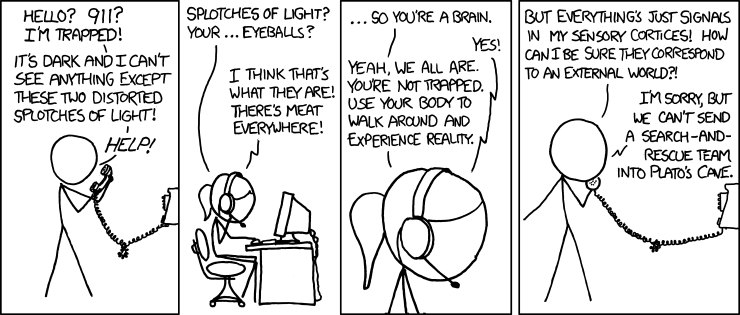março 31, 2011
março 29, 2011
Exploração
Por João Neto às 14:45
março 28, 2011
Redução
Por João Neto às 10:36
março 25, 2011
Hipocrisia Aplicada
Isto pode-se fazer:


 Já isto é proibido:
Já isto é proibido:
On October 21, 1971, [...] Disney accused the Pirates of copyright infringement, trademark infringement, unfair competition, intentional interference with business, and trade disparagement through the wrongful use of its characters. It stated that Disney, through "great effort and...large sums of money," had created characters whose "image of innocent delightfulness...are known and loved by people all over the world, particularly children" and that the defendants' efforts to "disparage and ridicule" these characters threatened to destroy Disney's business. The complaint requested that Disney be awarded all of the Pirates' profits, $5,000 for each copyright infringement, treble damages for the trademark infringement, punitive damages of $100,000 from each defendant, surrender of the offending books, and reimbursement of its attorneys' fees. [ref]
Disney filed a million dollar lawsuit against a family-owned clown company for trademark infringement. Marisol Perez-Chaveco and her husband run Kool Klown Party People in Claremont. The couple bought Winnie-the-Pooh, Eyeore and Tigger costumes on eBay for $700 and advertised the caracters on their company website, MySpace and Craig's List. Disney sent them three letters demanding them to remove the pictures and turn the costumes over to Disney so they can be destroyed. If not they would be sued. [ref]
Por João Neto às 10:49
março 21, 2011
Inércia II
Por João Neto às 08:34
março 18, 2011
Inércia
Por João Neto às 10:32
março 14, 2011
Interesses
Um post completo de um novo blog de teoria política muito interessante: "The remarkable truth of this conversation between bleeding heart libertarians and progressives is that our disagreement is exclusively empirical. If we all agree that political institutions should be arranged to alleviate poverty, then the only remaining question is which policies actually do this. Why is it then that we cannot agree, or at least converge, by just looking at reliable data, studies, and empirical theories? I suggest an answer: in the political arena, a person often supports a policy, not because of the effects he thinks that policy will have, but because his supporting it has symbolic value for himself or others. Supporting the minimum wage is an act that stands for a value such as concern for the poor. The person who is concerned for the poor wants to express that concern, and there are acts that socially symbolize that concern: praising the New Deal, announcing that you voted for a Democrat, supporting public schools, criticizing Bush. Symbolic behavior, I hasten to say, is not exclusive of progressives. In libertarian circles someone may oppose environmental regulation for symbolic reasons. That position evinces a hostile attitude toward government regulation in general which he wants to express. In his haste to send the right signals he overlooks (say) the problems of externalities and market failure. The speaker in these cases might not simply want to express himself. He may be anxious to be accepted in certain groups who associate the verbal act with other beliefs that the speaker presumably has and that make him a desirable candidate for admission. I have found that this problem, self-defeating political symbolism, is extraordinarily hard to eradicate and fatally gets in the way of agreement between these two audiences. Progressives feel compelled to stand by their positions even in the face of evidence that the policies they advocate frustrate the goal they profess. They stick to those views because the views strongly symbolize and give unity to a vision of the world associated with social justice. Libertarians, on the other hand, have a hard time convincing progressives that they care for the poor because they endorse policies that do not socially symbolize concern for social justice. I do not know how to get around this problem, but, for whatever is worth, I find symbolic behavior morally objectionable, because the speaker cares about the values he expresses more than about those persons he says he wants to help." Fernando Teson, Bleeding Heart Libertarians
Por João Neto às 20:29
março 08, 2011
Heresias
Por João Neto às 07:58
março 03, 2011
Ideologia
Por João Neto às 03:03


